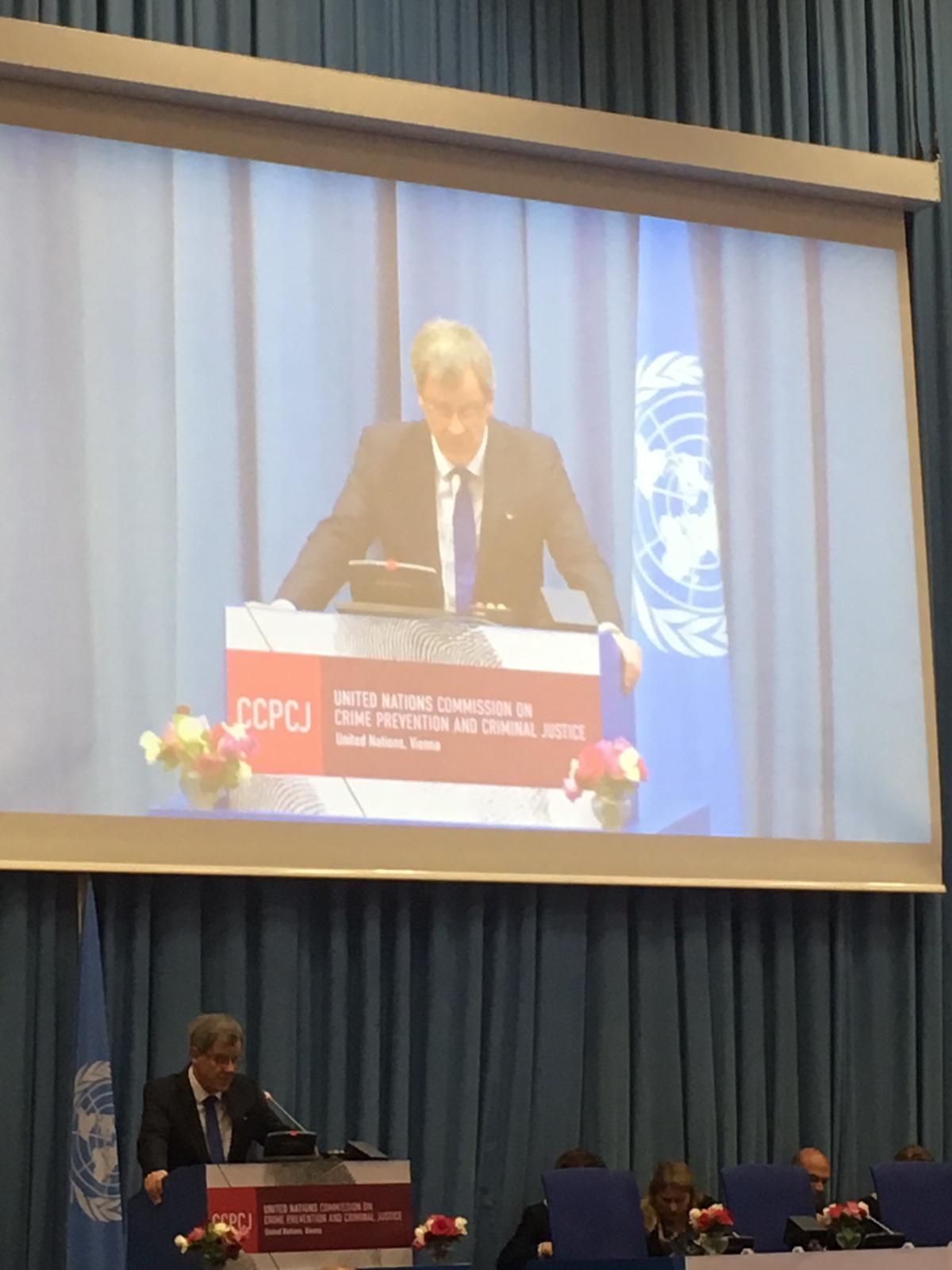UN system must address concerns about growing number of individuals sentenced to life imprisonment
Oral Statement delivered by Professor Dirk Van Zyl Smit
28th session, United Nations Commission on Crime Prevention and Criminal Justice
20 May 2018, Vienna

Professor Dirk Van Zyl Smit, Chairperson of the Board, Penal Reform International, Crime Commission (May 2019)
On behalf of Penal Reform International I want to draw the attention to a form of punishment most often used worldwide to deal with the most serious crimes. This is not the death penalty any more but life imprisonment. While we should be thankful for the decline in the use of capital punishment (and continue to press for it total abolition), at the same time we should recognise that the growing use of life imprisonment brings its own problems.
There are now about half a million people worldwide serving life sentences. The number of life-sentenced prisoners in the world has doubled since 2000, and is increasing steadily. Many of these prisoners are abandoned to their fate, offered no rehabilitative treatment or prospect of release and simply left to die in prison – for many, life imprisonment is a delayed death at the hands of the state.
Something needs to be done about this: The 1994 report from UNODC on life imprisonment, which represents the last UN guidance on this sanction, is now 25 years old and does not reflect current international standards.
PRI has a policy briefing that includes 12 specific recommendations for reforming life imprisonment. They are based on international law and best practice, including the Nelson Mandela Rules on the treatment of prisoners. Let me highlight just a few.
First, life imprisonment without parole should be abolished. Every prisoner should have the prospect of release when they no longer pose a danger to society. To deny this hope is cruel, inhuman and degrading.
Secondly, life sentencesshould be imposed only in cases where the most serious crimes have been committed and society needs to be protected. To ensure proportionality life sentences should never be mandatory. In many countries, life sentences are being imposed for crimes that are not the most serious; and for which the death penalty would never be used. This has to change to prevent the massive worldwide increase in life imprisonment.
Thirdly, life sentences must be implemented justly. Life prisoners should have the same rights and privileges as other prisoners. They should be given opportunities to rehabilitate and prove they can eventually lead a crime-free life in society.
Finally, there must be fair release procedures. They must guarantee that after a reasonable period (no more than 25 years, but often less), all life prisoners are considered for release by an impartial body, ideally a court. The release procedure should never be a retrial. It should simply determine whether the prisoner can reasonably be said not to pose a further risk to society.
A great deal has changed since the last UN initiative on life imprisonment in 1994. We call upon the international community to address the significant increase in the use of life imprisonment and the implementation of such sentences. The 14th UN Congress on Crime Prevention and Criminal Justice in 2020 provides an opportune moment to begin such a review that will guide member states towards a system that is compliant with international standards.